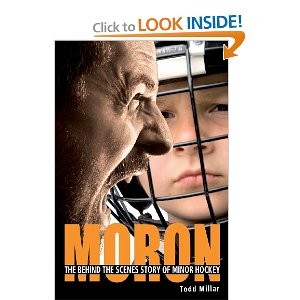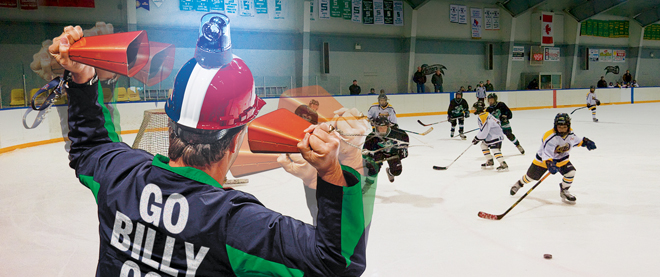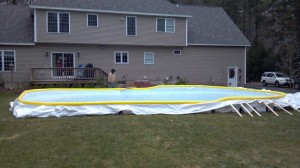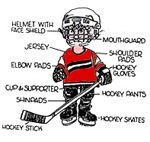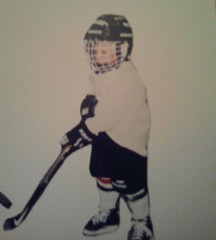Yeah, so in an extended moment of weakness a couple of months back I decided to apply for one more tour of hockey coaching duty. I guess I just can’t get enough of the all the time it takes to prep, spending 140+ hours in rinks between practices and games along with the ever present parent scrutiny and expectations raining down from the stands. But in truth, I applied again because I was fortunate this past season to have had the opportunity to work with a fantastic group of players. A true “team” with little to no infighting or divisions. The parent stuff is part of the job and at this point is mostly easy to simply let go in one ear and out the other. So I went through the interview process again; though mine was condensed being the incumbent for the position I sought. I had my answers ready ahead of time for the questions I thought I would be asked and sure enough was. A couple of weeks later the title of Head Coach was bequeathed upon me again.
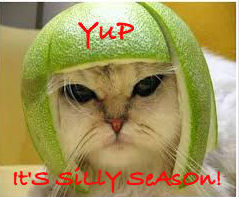
My first important and least enjoyable coaching task, as always, will be to try to select another good group by going through tryouts. Any one who has been a hockey coach surely feels this is the worst part of the job. Having to evaluate 50 odd players and pare down to a group of 17, with there being often very little difference between the abilities of the last 5-10 players on your list. I personally rely fairly heavily on my group of evaluators to help make the best technical choices based on the quality of each player’s tryout. A three-day tryout is hardly enough time to measure the true relative strengths of all of these players and plenty of factors come into play with teenage girls. But the process is what it is and we do our best to work within it. The difference with the last few players may be based your previous personal history with them; particularly at the Midget level where you’ve been on teams with the same players on and off for the last 5+ years. And sometimes you just have to go with your gut and hope for the best. One little twist to my tryout sessions this year is that they will be missing one notable participant, namely the Devil, who is still recovering from her broken fibula, sustained in a game in the closing weeks of last season. As Coach and Dad, I’d love to see her skate to justify her spot on the team, but she’s definitely not ready and I’m fairly certain no one will question her qualification based on her previous performance.
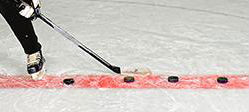 All of the tryout fun has already technically started as the team above mine started their selection process a couple of days ago. I’m attending their sessions to see what players I will have to choose from assuming they will attend my tryout once they’ve been released from the higher squad. Even though it’s only second tier Midget girls hockey (not to diminish it) the customary rumour mill has also already started. Who’s going to try out for which team, who’s already committed or been promised a spot or who wants to play with who. Minor hockey is simply never free from politics. I do my best to keep an open mind by remembering my end goal is to simply keep the game fun for the players; particularly at this end stage of the minor hockey careers. This will be the Devil’s last year. I want to ensure she and her teammates have a positive experience; encouraging them to continue playing the game, regardless the level, or giving back to the game as coaches.
All of the tryout fun has already technically started as the team above mine started their selection process a couple of days ago. I’m attending their sessions to see what players I will have to choose from assuming they will attend my tryout once they’ve been released from the higher squad. Even though it’s only second tier Midget girls hockey (not to diminish it) the customary rumour mill has also already started. Who’s going to try out for which team, who’s already committed or been promised a spot or who wants to play with who. Minor hockey is simply never free from politics. I do my best to keep an open mind by remembering my end goal is to simply keep the game fun for the players; particularly at this end stage of the minor hockey careers. This will be the Devil’s last year. I want to ensure she and her teammates have a positive experience; encouraging them to continue playing the game, regardless the level, or giving back to the game as coaches.
Of course, one of the other unavoidable challenges, is dealing with the ever-present hockey parents. While less so at this age, there are still a few out there who take the “game” too seriously for my liking. Others, as parents are wont to do, don particularly rose-coloured glasses this time of year. Their son or daughter is quite obviously the best player on the ice. And I get it, I’ve been there. Parent’s get pissed when their kids are rejected by a coach/team; a natural defence mechanism kicks in. Momma bear claws as our Momma likes to call them. But we’ve always told the Boy and the Devil they’d be fortunate if this was the worst rejection they ever received in life. Some parents are less objective as I hearken back to being accosted by an irate parent during last season’s tryout proceedings. So my open mind is paired with a solid set of blinders as I enter and exit the rink. In an effort to quell parental tirades one of the Provincial governing bodies has sent an email to its hockey parents reminding them to behave providing a list of tryout tips. Perhaps I’ll include this link in my introductory letter to the parents of my prospective players. Or maybe I’ll simply ask here if anyone reading this can pass it along to their hockey parent friends. I’d rather not I, nor my coaching comrades, have to worry about dealing with extra difficult situations. For most of us, having to release players is tough enough on us already.
In a few days, my evaluations and a few sleepless nights will begin. Kindly wish me, the players and the parents safe passage through this thankfully short but certainly silly season, after which we’ll all take a Summer rest and no doubt quickly start pining for the smell of the rink again. Or feel free to commiserate here and let me know how you handle the stress of the tryouts whether your a player, parent or fellow coach.
#imahockeydad

